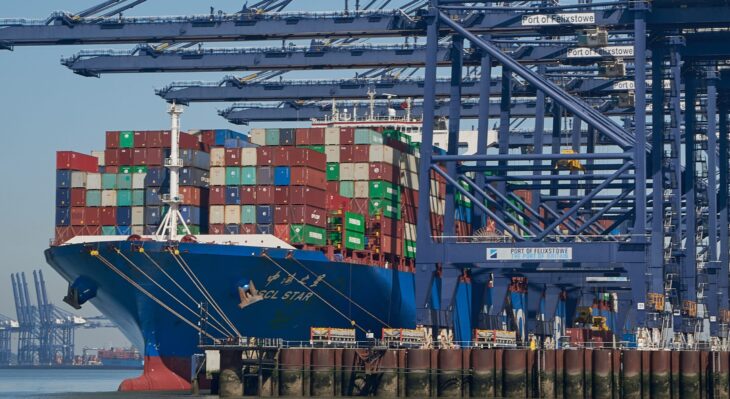The same, but different. The post-pandemic environment for private equity investors.

Although COVID put a brake on PE activity, the sector has bounced back impressively – but into a different investment environment. Here we look at the changes, and how to harness them for advantage.
Since the global economic crisis of 2008-2009 when deal activity plummeted by half, the Private Equity sector had enjoyed almost unchallenged growth and success – until COVID, when business initially nose-dived. But experience shows that post 2009, the PE sector bounced back quickly and impressively. It seems that history is now repeating itself. In the second half of the ‘lockdown’ year, PE activity in the UK recovered sharply, and this recovery continues apace.

While the first few months of lockdown were spent focussing on consolidation and maximising value within existing portfolios (with most PE managers expecting value creation to come from revenue growth, not cost reduction, according to a Harvard report), attention quickly returned to new opportunities. Globally, there’s an estimated $1.2 trillion in ‘dry powder’ capital waiting for the spark, and PE companies are on the look-out again. But that doesn’t mean they’re returning to the same investment models or decision-making criteria.

Unlike in the 2009 recession, the whole business landscape has been changed – not just by COVID, but also Brexit, the energy crisis and now the war in Ukraine. The notion of risk has been taken to new levels. There’s a new way of working, and nobody yet knows how this will impact on business performance. We’ve seen closed borders, interrupted supply chains and rising prices. There’s the energy crisis, and increased risk of cyber-attack. And relations between Russia and the West have taken the world to a dangerous and uncertain place. All of these are having far-reaching consequences for businesses and are causing PE investors to think long and hard about what to look for, and where to invest.
Attractive options.
For the moment at least, the less attractive options are for those businesses most directly affected by recent events, including energy, retail and hospitality and leisure. Conversely, the areas of interest are those which most fit the zeitgeist – so food, finance, healthcare and IT and communications. Above and beyond this, investors are looking for businesses that performed well throughout COVID, and that are well placed to continue that arc. Two factors they look for are digitalisation and Environmental, Social and Governance (ESG) – two defining trends to emerge over the last two years.
ESG – a game changer.
Spending more time at home during lockdown, and with thoughts turning to European security, people have re-evaluated their priorities, with family, mental well-being and the work-life balance all coming to the fore. Their relationship with brands has also shifted, and they expect more, especially in terms of diversity and ESG. PE investors are attracted to companies which exemplify this approach.

However, a recent Harvard survey of PE managers during COVID suggests that smart investment money will continue to be focussed primarily on companies which have embraced digitalisation.
Digitalisation – a powerful factor in successful investment.
Digitalisation was already on a fast-track, but accelerated exponentially with the arrival of COVID lockdowns, filling the vacuum left by the absence of ‘face-to-face’ contact. This changed the way people worked, communicated, shopped and consumed information. Businesses which were able to pivot to meet these new behaviours, and which were able to deploy digital effectively, were better placed to unlock value. The digital train is still thundering on, and investors are increasingly aware of its potential to influence exit valuations.

From supporting PE backed organisations, Wyatt has first-hand experience of this. We helped DSI Underground – part of the Triton Group – conclude a successful sale to the Sandvik Group, with their focus on digital mining consumables being a major factor. Equally, in one of the most challenging construction branding projects of recent years, we helped an Aurelius’ backed company – Armstrong Ceiling Solutions – migrate its brand and equity to a new digitally enabled brand and future: Zentia. In a post-digital world, digitalisation isn’t simply nice to have. It’s essential.
Authenticity, agility and audience-centred.
So we have two factors – digitalisation and consumer expectation – that can define business success. This is stated clearly by McKinsey in its report – ‘A rolling disruption: COVID-19’s implications for private equity and portfolio companies’ where it states that the pandemic had accelerated existing trends including the digitalisation of customer channels, as well as giving rise to new ones such as real-time tracking and traceability. They also cite a pressing need ‘for business models that adapt to shifts in consumer preferences’. Interestingly, each of these were explored in Breathe, Wyatt’s Recovery playbook published in 2020 to help organisations embrace digitalisation.
We therefore fully agree wholeheartedly with McKinsey. The way to unlock value and drive revenue growth is by accelerating digitalisation – taking a more authentic, audience-first approach, being more agile and responsive to changing needs, and using sophisticated metrics to monitor activity.
Unlocking value, accelerating performance.
Clearly, there are huge investment opportunities post-pandemic. Whether PE operating teams are looking for new targets, or to accelerate the performance and positioning of brands within their existing portfolio, they should look to establish strategies which focus on the customer experience and unlocking hidden value. And through it all of course, there should be a big dash of digital.
For a digital copy of Wyatt International’s PE offer, ‘Unlocking the value in your portfolio’, email us at hello@wyattinternational.com or get in touch for an exploratory conversation about our capabilities and strategic options.